 ★★★½
★★★½
“I’d have settled for two of three.”
This has been a long, long time coming. I’ve been a fan of Yeoh since seeing her Hong Kong starring debut, Yes, Madam, which came out all the way back in 1985. Over the years since, her career has had its ups and downs, including complete retirement after her marriage in the late eighties. She returned, and is the only actress to have appeared in two movies rated five stars here: Heroic Trio and Crouching Tiger, Hidden Dragon. But her career in Hollywood has been limited to sterling support roles, in both movies and television, encompassing everything from Bond film Tomorrow Never Dies through Star Trek: Discovery to Crazy Rich Asians. A starring role, appropriate to her talents, never seemed to come along.
Until now. Thirty-seven years after Yes, Madam, and at the age of 59, this film finally puts Yeoh where she deserves to be: front and centre. Yet, perhaps partly due to how long I’ve been waiting for this, I must confess to being a bit disappointed this is not a classic to match the titles listed above. Oh, it certainly has its moments, and Yeoh is as good as expected. However, its 139-minute running-time feels more a curse than a blessing. The concept at its core is almost infinite in scope, and I did feel the movie was trying to include all of it. Less could have been more, with a targetted approach preferable to the relentless overload adopted by the makers, which left me feeling as if I was drinking from a fire-hose.
The multiverses here literally rotate around Evelyn Wang (Yeoh), who runs a laundromat teetering on the edge of failure, with her husband, Waymond (Quan). Their marriage is also failing, her relationship with her daughter, Joy (Hsu) is on rocky ground, and she has to go to an appointment with hard-ass IRS tax auditor Deirdre Beaubeirdra (Curtis). The last is where things kick off, as she is visited by a Waymond from an alternate universe, who tells Evelyn she is the only hope of foiling the evil Jobu Tupaki. That’s an alternate Joy, who has gone insane and created a black hole-like vortex which could destroy all the multiverses. Fortunately, Evelyn’s abject failings at life give her the ability to tap into all the skills and knowledge of the other, better versions of herself.
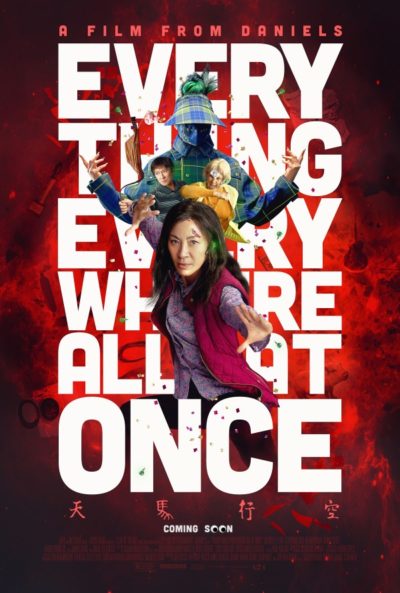 Like I said: almost infinite in scope. Apparently, co-writer/director Kwan was diagnosed with ADHD during the creative process: to be frank, it shows. While the imagination on view is admirable, the film bounces about between ideas at a ferocious rate, almost regardless of whether they deserve it. We spend an inordinate amount of time in a multiverse where everyone has long, floppy fingers. Yet there is also buttplug-fu, which is an example of the movie going places you’d never have expected could be so entertaining. Or a lengthy, surprisingly engrossing, scene in which two rocks in an otherwise lifeless multiverse have a conversation in captions. Because why not?
Like I said: almost infinite in scope. Apparently, co-writer/director Kwan was diagnosed with ADHD during the creative process: to be frank, it shows. While the imagination on view is admirable, the film bounces about between ideas at a ferocious rate, almost regardless of whether they deserve it. We spend an inordinate amount of time in a multiverse where everyone has long, floppy fingers. Yet there is also buttplug-fu, which is an example of the movie going places you’d never have expected could be so entertaining. Or a lengthy, surprisingly engrossing, scene in which two rocks in an otherwise lifeless multiverse have a conversation in captions. Because why not?
To the film’s credit, it never abandons its characters, and that helps keep it grounded. Albeit only just, on occasion the movie standing on its tippy-toes as it tries desperately to avoid being blown away by its own excesses. It’s perhaps telling that, despite all the film’s visual bluster, the most effective moment for me was among the simplest, one character telling another, “In another life, I would’ve been happy just doing laundry and taxes with you.” As such, Yeoh is the story’s heart, and gets to demonstrate her unquestionable acting talent. It has been fascinating to see the development of that, especially considering her lack of not just experience but any formal training. I mean, she first entered the field close to four decades ago, as a former Miss World contestant. How many of them eventually go on to get talk of an Oscar?
It’s as a result of this that I kept watching the film, because I genuinely cared what happened to Evelyn. I wanted to see her figure it all out and make peace with the various forces trying to tear her humdrum life apart. From that angle, it’s close to soap-opera, albeit an unusually effective one. Except, of course, the means by which that peace is potentially achieved, includes multiverse hopping, and fighting an evil version of your own daughter, who wields a gurgling plughole of doom. It’s the overlap between the mundane and bizarre where this finds its own voice. The problem is, it tries too hard to live up to the title. Sure, give us everything, everywhere. I’d just rather it hadn’t done so, all at once.
Yet, similarly, it leaves an awful lot of potential on the table. Why is kung-fu virtually the only talent Evelyn uses? Tap into a universe where she’s a cab driver, and give us an epic car-chase. Or the one where she’s a cat-burglar, for heist purposes. It’s not hard to come up with a dozen such threads. Perhaps the makers were constrained by their budget, a relatively cheap $25 million – less than Crazy Rich Asians. They do an admirable job of squeezing value out of it; again, the sheer pace probably helps, with your brain trying so desperately to keep up, it’s hard-pushed to pay attention to any of the finer details.
But I’m glad I won’t go to my grave with my final paid cinematic experience being Terminator: Dark Fate. [Though the two Neanderthals beside us, talking loudly and checking their phones throughout, really make me think we are done with theatres] The Daniels deserve credit for the obvious invention displayed, and this is the kind of original property I’m happy to support, over another sequel and/or shitty comic adaptation. I also must mention the supporting cast, who are uniformly great, particularly Hsu as both aggravated daughter and multiiverse threatening villainess [There’s also a cameo by another eighties Hong Kong action actress, Michiko Nishiwaki. Maybe she’ll get her own movie next?]. That it stars one of the most under-rated actresses in Hollywood, finally getting the opportunity she deserves, is alone reason enough to see this. Just don’t expect too much.
Dir: Dan Kwan, Daniel Scheinert
Star: Michelle Yeoh, Stephanie Hsu, Ke Huy Quan, Jamie Lee Curtis
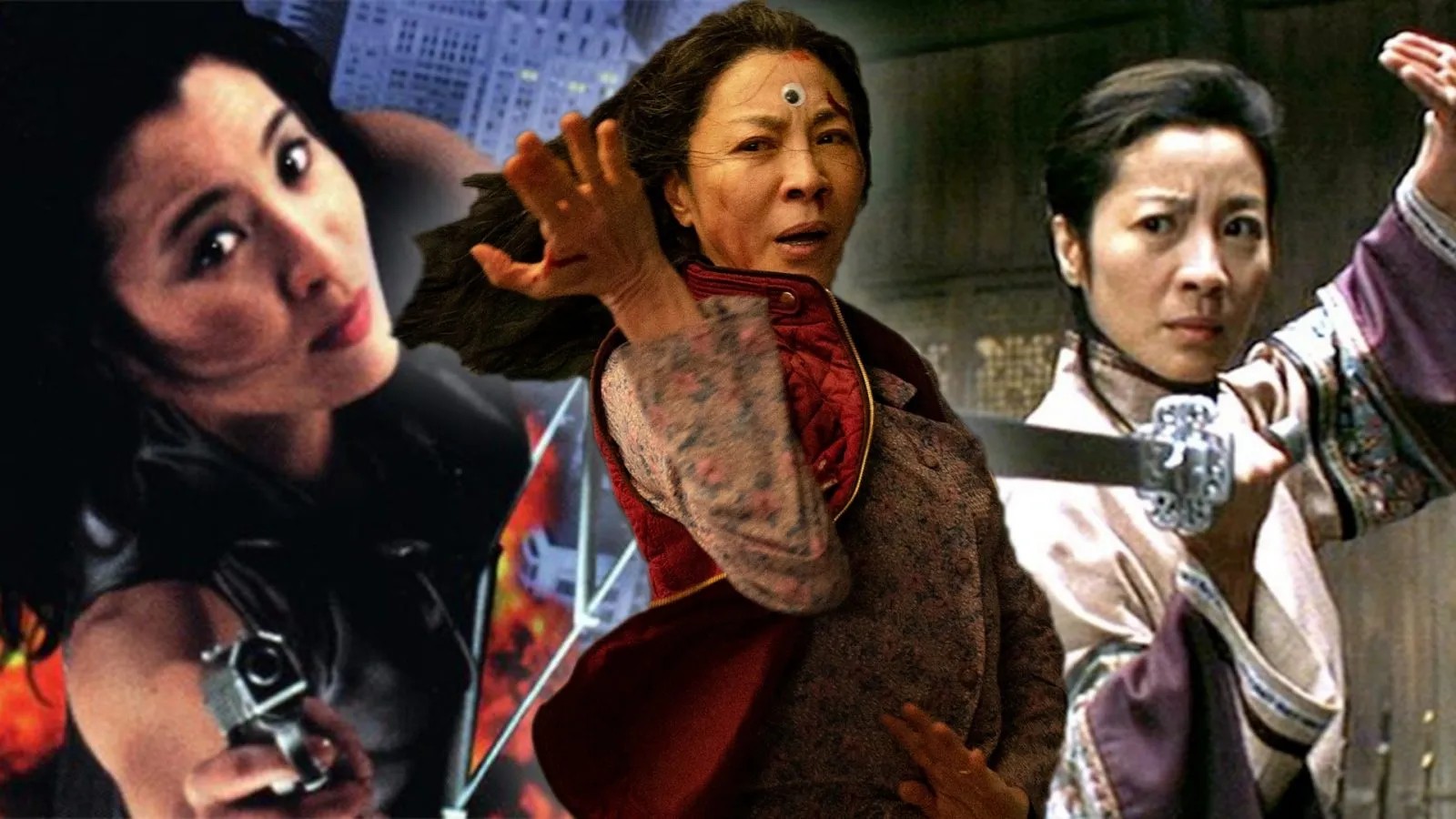
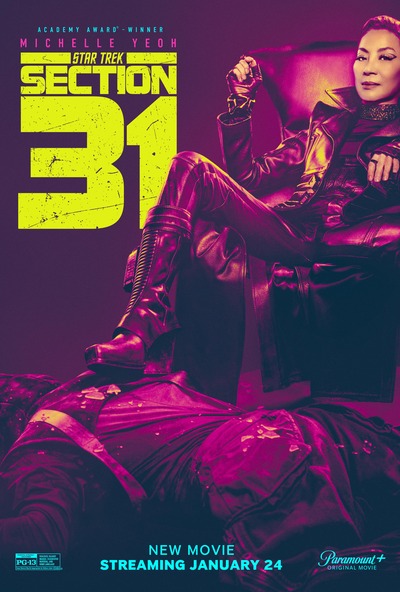 While I have seen all the movies, I’ve never particularly been a fan of the Star Trek universe. I leave that largely to Chris, who has been watching the show since the original series. That includes Star Trek: Discovery, the series from which this spun off, and I was… in the room when it was on. But I have been a fan of Michelle Yeoh since Yes, Madam – sorry, make that Oscar-winner Michelle Yeoh, and did enjoy her evil turn as Philippa Georgiou, head of the Terran Empire in a parallel universe, who relocates to our universe. As this begins, she has taken refuge, out beyond the reach of the Federation, in a club apparently having a Fifth Element theme night.
While I have seen all the movies, I’ve never particularly been a fan of the Star Trek universe. I leave that largely to Chris, who has been watching the show since the original series. That includes Star Trek: Discovery, the series from which this spun off, and I was… in the room when it was on. But I have been a fan of Michelle Yeoh since Yes, Madam – sorry, make that Oscar-winner Michelle Yeoh, and did enjoy her evil turn as Philippa Georgiou, head of the Terran Empire in a parallel universe, who relocates to our universe. As this begins, she has taken refuge, out beyond the reach of the Federation, in a club apparently having a Fifth Element theme night.




 ★★★½
★★★½ Like I said: almost infinite in scope. Apparently, co-writer/director Kwan was diagnosed with ADHD during the creative process: to be frank, it shows. While the imagination on view is admirable, the film bounces about between ideas at a ferocious rate, almost regardless of whether they deserve it. We spend an inordinate amount of time in a multiverse where everyone has long, floppy fingers. Yet there is also buttplug-fu, which is an example of the movie going places you’d never have expected could be so entertaining. Or a lengthy, surprisingly engrossing, scene in which two rocks in an otherwise lifeless multiverse have a conversation in captions. Because why not?
Like I said: almost infinite in scope. Apparently, co-writer/director Kwan was diagnosed with ADHD during the creative process: to be frank, it shows. While the imagination on view is admirable, the film bounces about between ideas at a ferocious rate, almost regardless of whether they deserve it. We spend an inordinate amount of time in a multiverse where everyone has long, floppy fingers. Yet there is also buttplug-fu, which is an example of the movie going places you’d never have expected could be so entertaining. Or a lengthy, surprisingly engrossing, scene in which two rocks in an otherwise lifeless multiverse have a conversation in captions. Because why not?

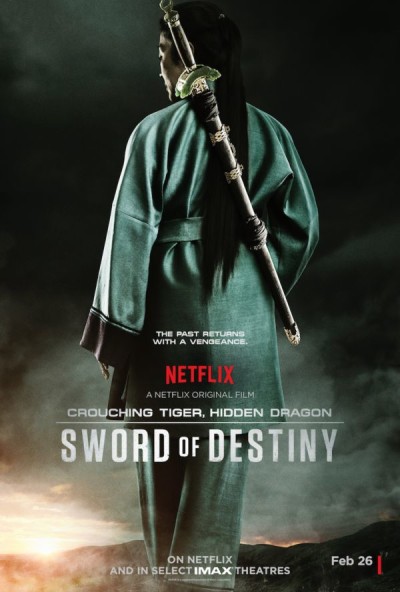
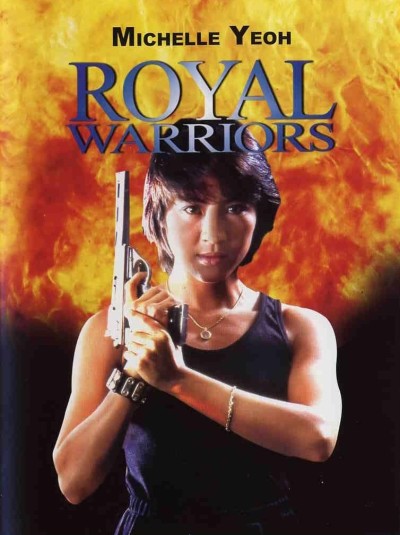 It’s really the finale which makes this stand out – not necessarily for its qualities (though it’s far from bad), more for the batshit insanity. It sees ex-cop Michelle Yip (Yeoh) storm a construction site in an armoured car, to rescue the coffin containing the body of a colleague, which has been suspended from a crane by the bad guy. How the hell did we get here? Good question. It all starts on a plane back from Japan, where among the passengers are Yip, Interpol agent Peter Yamamoto (Sanada, recently seen creating doomsday diseases in Helix) and security guard Michael Wong (Wong – a lot of thought clearly went into that character). On the flight, there’s a hijack, in an attempt to free a killer being extradited to Hong Kong; our heroic trio foil it, killing the hijackers. But that just brings down the wrath of the rest of the gang, who vow to take their revenge on the people who killed their colleagues. And they really don’t care who gets in their way, as a mass gun-battle at a night-club shows – it also gets Yip taken off the case.
It’s really the finale which makes this stand out – not necessarily for its qualities (though it’s far from bad), more for the batshit insanity. It sees ex-cop Michelle Yip (Yeoh) storm a construction site in an armoured car, to rescue the coffin containing the body of a colleague, which has been suspended from a crane by the bad guy. How the hell did we get here? Good question. It all starts on a plane back from Japan, where among the passengers are Yip, Interpol agent Peter Yamamoto (Sanada, recently seen creating doomsday diseases in Helix) and security guard Michael Wong (Wong – a lot of thought clearly went into that character). On the flight, there’s a hijack, in an attempt to free a killer being extradited to Hong Kong; our heroic trio foil it, killing the hijackers. But that just brings down the wrath of the rest of the gang, who vow to take their revenge on the people who killed their colleagues. And they really don’t care who gets in their way, as a mass gun-battle at a night-club shows – it also gets Yip taken off the case.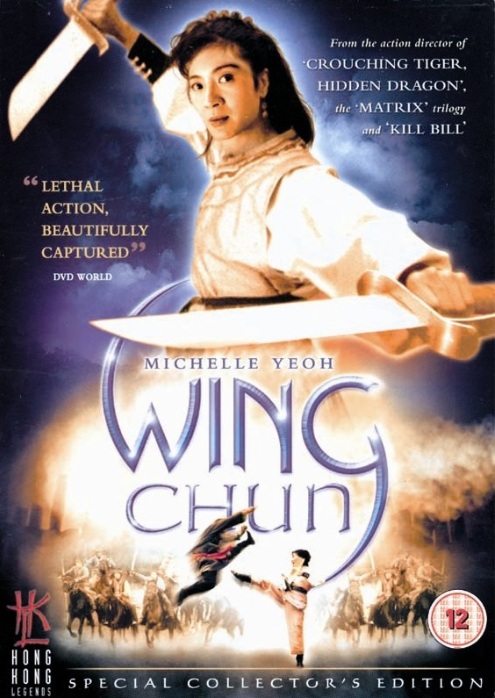
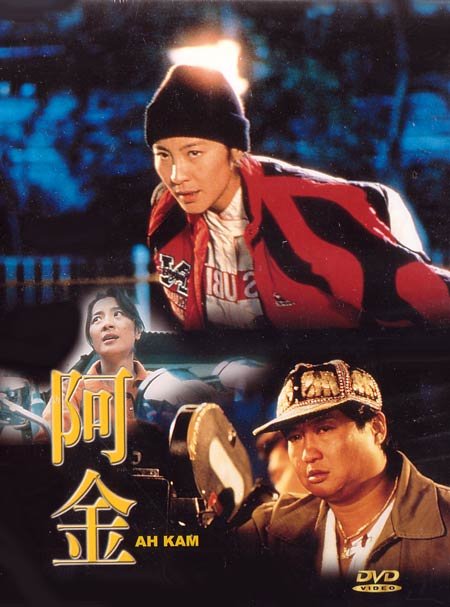
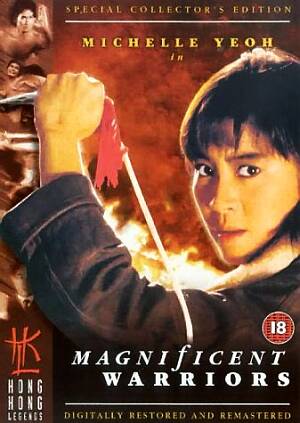
 Ok, the above is a rabid simplification; there are no artifacts here at all, but there’s no doubt Michelle Yeoh’s adventurer owes more than a touch to the archaeologist we all know and love – not least in the bullwhip she wields in the opening sequence. While for nasty Nazis, read nasty Nips, with the Japanese who are occupying mainland China at the time of this film, so villainous they might as well be twirling wax moustaches and wearing top hats. They’re building a poison gas factory, and it’s up to Yeoh, agent 001 Yee and scoundrel Ng to stop them.
Ok, the above is a rabid simplification; there are no artifacts here at all, but there’s no doubt Michelle Yeoh’s adventurer owes more than a touch to the archaeologist we all know and love – not least in the bullwhip she wields in the opening sequence. While for nasty Nazis, read nasty Nips, with the Japanese who are occupying mainland China at the time of this film, so villainous they might as well be twirling wax moustaches and wearing top hats. They’re building a poison gas factory, and it’s up to Yeoh, agent 001 Yee and scoundrel Ng to stop them.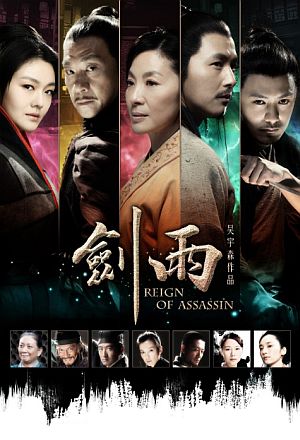 The most disappointing film of 2010? I went in with huge expectations, based on reviews that said, “The best swordplay film since Crouching Tiger, Hidden Dragon..” O RLY? I know Crouching Tiger. Crouching Tiger is one of my favourite movies. And Reign of Assassins, you’re no Crouching Tiger. It’s a confused, poorly-shot mess that proved a struggle to endure and a challenge to stay awake, right from the opening lump of introduction. Stick with me for this synopsis. The remains of a Buddhist monk, split in two, are said to turn whoever has them into a kung-fu master. The Dark Stone gang, under the Wheel King (Wang), want to possess them, and get one half, but gang member Drizzle makes off with the body parts, undergoes plastic surgery that turns her into Michelle Yeoh and takes up a quiet life as a fabric seller. She meets and marries Jiang Asheng (Jung), until her secret identity is revealed in a bank raid, and the Dark Stone gang come after her again. However, turns out Jiang isn’t who he seems either…
The most disappointing film of 2010? I went in with huge expectations, based on reviews that said, “The best swordplay film since Crouching Tiger, Hidden Dragon..” O RLY? I know Crouching Tiger. Crouching Tiger is one of my favourite movies. And Reign of Assassins, you’re no Crouching Tiger. It’s a confused, poorly-shot mess that proved a struggle to endure and a challenge to stay awake, right from the opening lump of introduction. Stick with me for this synopsis. The remains of a Buddhist monk, split in two, are said to turn whoever has them into a kung-fu master. The Dark Stone gang, under the Wheel King (Wang), want to possess them, and get one half, but gang member Drizzle makes off with the body parts, undergoes plastic surgery that turns her into Michelle Yeoh and takes up a quiet life as a fabric seller. She meets and marries Jiang Asheng (Jung), until her secret identity is revealed in a bank raid, and the Dark Stone gang come after her again. However, turns out Jiang isn’t who he seems either…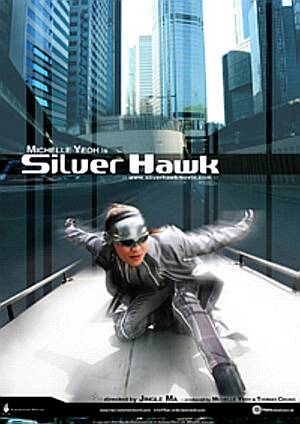 There’s no doubt about the aesthetic they’re aiming for here; heroine with secret identity, sneering evil nemesis, gadgets, etc. Take a Marvel comic from the 60’s, transplant it to the modern Far East, and there you are. Indeed, this period is apparently where SilverHawk originated; unfortunately, the makers failed to learn from similar failures such as The Avengers, The Mod Squad and Wild Wild West, and the results are lacklustre.
There’s no doubt about the aesthetic they’re aiming for here; heroine with secret identity, sneering evil nemesis, gadgets, etc. Take a Marvel comic from the 60’s, transplant it to the modern Far East, and there you are. Indeed, this period is apparently where SilverHawk originated; unfortunately, the makers failed to learn from similar failures such as The Avengers, The Mod Squad and Wild Wild West, and the results are lacklustre.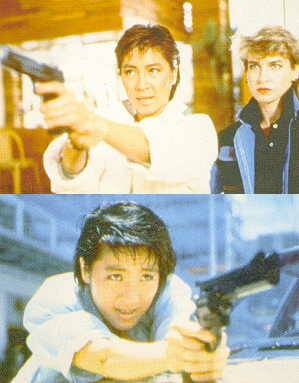 Purely on a historical level, this 1985 film merits attention since it started the whole action-heroine genre in Hong Kong cinema, which thrived for the next decade, producing some of the finest entries ever made. It also was, effectively, the start of the careers of Michelle Yeoh and Cynthia Rothrock. Interesting to see how they’ve since headed in opposite directions: Rothrock to low-budget erotic thrillers, Yeoh to the Academy Awards.
Purely on a historical level, this 1985 film merits attention since it started the whole action-heroine genre in Hong Kong cinema, which thrived for the next decade, producing some of the finest entries ever made. It also was, effectively, the start of the careers of Michelle Yeoh and Cynthia Rothrock. Interesting to see how they’ve since headed in opposite directions: Rothrock to low-budget erotic thrillers, Yeoh to the Academy Awards.